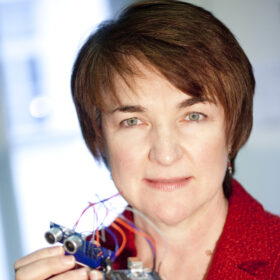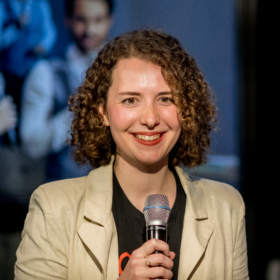Expertin
Prof.in Dr.in Geraldine Fitzpatrick
Expertin
Expertin des Monats
Sept. 2010
Expertise
- Informations- und Kommunikationstechnologie: Human-computer interaction perspectives of: Health informatics/telecare/Ambient Assisted Living; Technology for older people; Pervasive and tangible computing; Social Informatics, Groupware, Social Software; User Centred Design (UCD), Usability and Participatory Design (PD).
- Technische Wissenschaften: Multi-disciplinary research, especially at intersections of social/human science, computer science and application areas
- Frauenforschung: Many research projects in female-dominated fields - nursing, teaching; gender perspectives of IT use and contexts of use Active in diversity/gender initiatives in IT domains in Australia, US, UK, Austria
Verfügbar für
Gender-Trainings
Interviews
Jury
Kooperationen
Mentoring
Projektleitung
Projektmitarbeit
Vortragstätigkeiten
Beruflich
Oberes Management
Tätigkeitsbereiche:- Universität
Ausbildung
Universität (1998)
Informations- und Kommunikationstechnologie
Zusatzausbildung(en)
Nurse/Midwife
Executive/professional coach
Weitere Fachrichtungen, weitere Ausbildungen
Human computer interaction, user experience, user research methods, user centred design, usability, collaborative work, ubiquitous computing
Design/evaluation of IT for healthcare/self care/telecare, physical and mental health and well being, older people, social interaction, people-centred smart cities
Sprachen
Mehr Details
Referenzen
Auszeichnungen / Preise
Publikationen

Prof.in Dr.in Geraldine Fitzpatrick
Kontakt
- 01 58801-18735
- geraldine.fitzpatrick@tuwien.ac.at
- https://twitter.com/geri_fitz
- https://twitter.com/ChangeAcadLife
- http://www.changingacademiclife.com
Letzte Aktualisierung: 14.09.2019



















